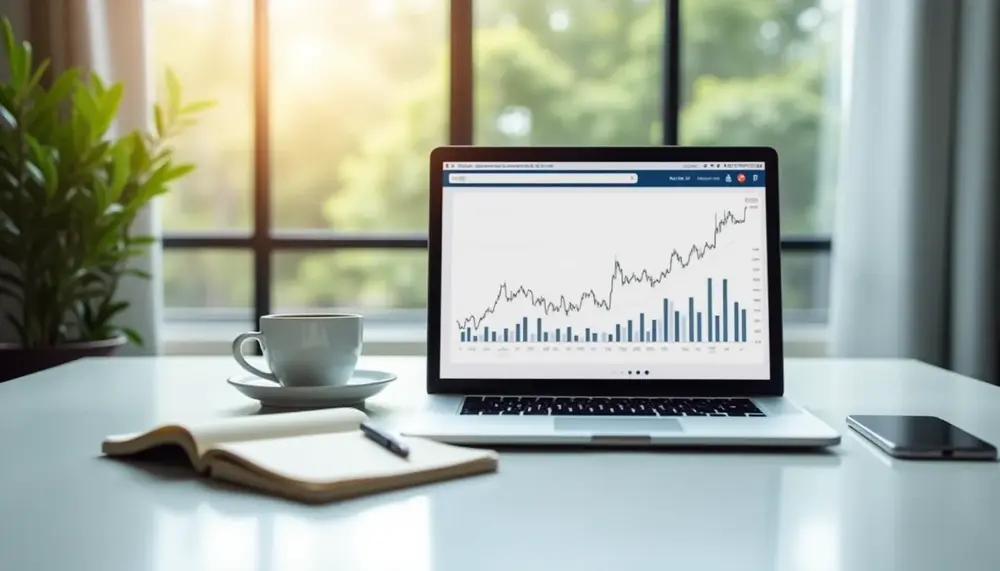Foreign Exchange
Foreign Exchange
In the world of finance and investment, you will often encounter the term Foreign Exchange or popularly known as Forex. Understanding this term is vital for anyone who dabbles in trading, especially the beginners. Let's dive in and discuss what Foreign Exchange means in the context of trading!
Understanding the Basics of Foreign Exchange
Foreign Exchange refers to the global marketplace where currencies are traded. It's basically the process of changing one currency into another. Primarily, this system plays a crucial role in global trade, providing a platform where businesses across the globe can trade in any currency, thereby enabling international trade.
How does Foreign Exchange work?
Just like shares or commodities, currencies also have a value that fluctuates based on various economic factors. In the Foreign Exchange market, currencies are traded in pairs, and the fluctuation in their value relative to each other is where traders aim to make a profit.
The Role of Foreign Exchange in Trading
In trading, e.g. Forex trading, traders buy and sell currencies with the goal of making a profit from changes in currency values. For instance, if a trader believes the value of the Euro will rise against the US Dollar, they may buy Euros with Dollars. If the Euro's value goes up, they can then sell the Euros back for more Dollars than they initially paid, thus making a profit.
Conclusion
Understanding the concept of Foreign Exchange can open up new avenues for trading. By closely watching the currency market, predicting future trends, and acting accordingly, traders can tap into the dynamic and lucrative world of Forex trading. Remember, Forex trading carries significant risk and isn't suitable for everyone. Consider your risk tolerance and financial goals before entering this market.
Blog Posts with the term: Foreign Exchange

Retail trading is experiencing a surge in popularity, with individual investors entering the market thanks to easy-to-use trading platforms and accessible financial information. Factors such as technology, increased financial literacy, and the democratization of finance have contributed to this boom,...

Welcome to an exploration of the history of trading, from its earliest forms to the sophisticated systems we have today. This article breaks down the evolution of trading, from barter to blockchain, and discusses the advantages and disadvantages of each...

The article highlights the growing need for crypto tax attorneys as cryptocurrency regulations evolve, emphasizing their role in ensuring compliance, strategic planning, and handling audits or disputes. It underscores the complexities of tracking transactions, determining taxable events, and navigating international...

Understanding the basics of cryptocurrency trading is important, but advanced trading strategies can give traders a competitive edge in the volatile market. This article provides comprehensive insights into these strategies, including technical analysis, risk management, leveraging options and futures, and...

Central Banks play a crucial role in managing a country's money supply and regulating the economy. Their policy decisions have a significant impact on financial markets, including interest rate changes, quantitative easing, and regulation, which can influence trading behavior and...

This article discusses the difference between investing and trading in the financial markets. It explains that investing is a long-term strategy focused on gradual wealth accumulation, while trading is a short-term approach aimed at profiting from price fluctuations. The article...

This article serves as a beginner's guide to Forex trading and provides a comprehensive overview of the strategies and terms involved in trading foreign currencies. It emphasizes the importance of having a solid trading strategy and discusses popular strategies such...

Forex trading involves the exchange of government-backed currencies and is considered the largest, most liquid market in the world with a daily volume exceeding $6 trillion. In contrast, crypto trading deals with digital or virtual currencies not backed by any...

Algorithmic trading uses computer algorithms to execute trades with speed and precision, leveraging strategies like trend following or arbitrage while relying heavily on data analysis; it has evolved from simple automation in the 1970s to high-frequency trading today....

General trading serves as a cornerstone of global commerce by connecting markets, industries, and consumers through diverse goods and services while fostering economic growth. Its adaptability, extensive networks, and ability to bridge supply chain gaps make it vital for innovation,...

The article emphasizes the importance of simplifying cryptocurrency taxes to ensure compliance, avoid penalties, and maximize financial outcomes by understanding taxable events, properly classifying transactions (e.g., capital gains vs. income), and leveraging tools like crypto tax software for accurate reporting...

